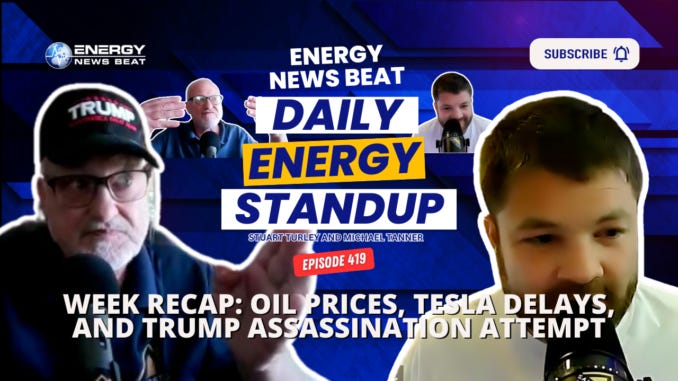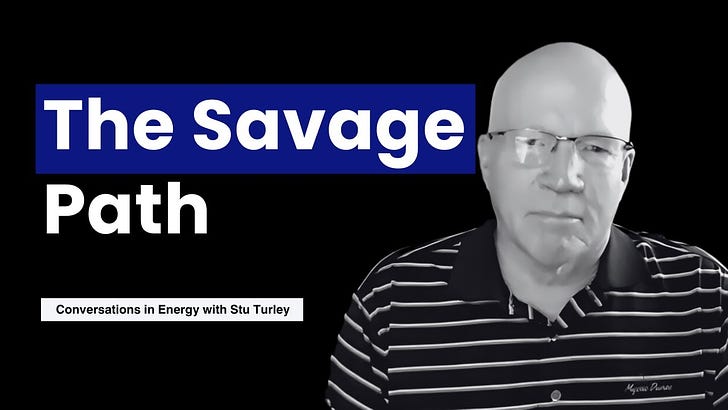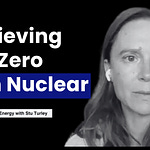Weekly Daily Standup Top Stories
Trump shot in ear at campaign rally, world leaders react
Donald Trump was shot in the ear during a Saturday (13 July) campaign rally, streaking the Republican presidential candidate’s blood across his face and prompting his security agents to swarm him, before he emerged […]
Western Companies Are Now Paying for Russia Sanctions
U.S. and European companies still have billions of dollars in assets in Russia—and Moscow is starting to retaliate. By Giovanni Legorano, a journalist based in Italy. After months of discussions over whether to confiscate […]
UK offshore energies industry unveils blueprint for net zero power
Offshore Energies UK (OEUK) has revealed a strategy to guide the UK toward achieving net zero power by 2030. The plan, outlined in a report from AFRY Management Consulting, addresses challenges and goals ahead. By […]
Countering Europe’s Backlash to the Green Transition
A sustainable future is still possible—even amidst a radically altered political climate. Argument An expert’s point of view on a current event. By Patrick Schröder, a senior research fellow at the Environment and Society Centre, […]
9 Consequential Energy Predictions – Midyear Review
As has been my habit for a dozen years as a contributor at Forbes, it is time to conduct a midyear review of the annual energy predictions I made at the first of the current […]
Ex-Biden Lackey Tells CNBC: To Fix Inflation, Ditch Fossil Fuels And Boost Green Spending
A former Biden official promoted spending billions more dollars on green energy as a solution to economic and inflationary woes. Heritage Foundation economist E. J. Antoni quickly set a former Biden official straight after […]
Highlights of the Podcast
00:48 - Trump shot in ear at campaign rally, world leaders react
05:20 - Western Companies Are Now Paying for Russia Sanctions
09:04 - UK offshore energies industry unveils blueprint for net zero power
10:26 - Countering Europe’s Backlash to the Green Transition
12:37 - 9 Consequential Energy Predictions – Midyear Review
16:31 - Ex-Biden Lackey Tells CNBC: To Fix Inflation, Ditch Fossil Fuels And Boost Green Spending
Follow Stuart On LinkedIn and Twitter
Follow Michael On LinkedIn and Twitter
– Get in Contact With The Show –
Video Transcription edited for grammar. We disavow any errors unless they make us look better or smarter.
Stuart Turley: [00:00:15] Hello, everybody. Welcome to the Energy News the Daily Standup. This is the weekly recap. Michael and I have been busy this week. The stories are phenomenal and I'll tell you, it is just getting crazy. We've got a bunch of great podcasts coming up. I got some new, ones with, Josh young over at bison and a few other folks that were getting scheduled in on the podcast, but, buckle up, I'm going to turn this over to the, staff and let them pick the best of the week. So enjoy the show. [00:00:47][32.9]
Stuart Turley: [00:00:48] Trump shot in the air campaign rally. World leaders react. Michael, I just want to say I am. Our hearts go out for everyone that was there. The family of the deceased. That's the first thing. President Trump, what a fighter. This really got me worked up. [00:01:05][16.4]
Michael Tanner: [00:01:06] I wouldn't have thought that. [00:01:07][1.6]
Stuart Turley: [00:01:08] Oh, I am so grumpy out now. Here we are for our podcast listeners. I'm pulling out. Do I wear my army hat or to wear my Trump hat? I don't really care anymore. I am going to wear this hat with pride everywhere I go. And anybody in this in my family. Screw you, I'm wearing a hat. [00:01:28][19.5]
Michael Tanner: [00:01:28] We are here. Second book. First off, this is an official endorsement for Sue. I can tell you I'm shocked. [00:01:32][4.4]
Stuart Turley: [00:01:33] Oh, yeah. Hey, by the way, hats off to the Secret Service. That did step up. But I also want to say there are rumors out there saying who to blame. I'm going to say this, Michael, the who to blame on this. There is he what the a Democrat that filed for legislation to remove secret service. They need to be thrown out of Congress. The other one is President Biden. President Biden called on this and said there was going to be some changes happen this weekend. He telegraphed some things. I'm not going to get into that. But there are things that the shooter, that the sniper that actually was the police sniper. There are rumors and I don't have this verified, but I have sent it to Dan Bongino for verification. He said he was told to stand down. Michael, I'm not going to say that that is the truth, but I am saying I'm asking for Dan Bongino to check that one out, because if the Secret Service did ask him to stand down, that is a failure. In the I of the David Blackman put out a video of it look like Keystone Cops, the females trying to protect Donald Trump. President Trump is pathetic. I am sorry, I am all worked up. [00:02:53][80.1]
Michael Tanner: [00:02:54] I saw one tweet that said this look like an episode of Reno 911. And if you've ever if you've ever seen that show, it was really true. You know, first off, obviously super scary. It is kind of incredible to think about the as this article goes on, to talk about how strong the world leaders have come out and condemned this and how little our, our own government has come out to release this. I mean, I'm an avid New York Times reader, and I just thought he fell off the stage until I actually saw the video. [00:03:21][27.1]
Stuart Turley: [00:03:21] And then said he fell. [00:03:22][0.9]
Michael Tanner: [00:03:23] Off the stage. It was insane. I mean, he within five seconds of watching the video, you knew what happened. Yeah. You had you had all these people trying to tip toe it around because let's make it very clear it Trump's going to win in November. I mean, if there was any doubt of him winning it, this blew it out of the water. [00:03:41][18.0]
Stuart Turley: [00:03:42] This changed it for not only for me. I'm done pussyfooting around with anybody telling me that, oh, we got to be nice. I'm sorry the gloves are off, dude. And this is now a battle for the survival. And do not kid yourself, the deep state. Here's where I've been very vocal about this. General Flynn, you are now needed as our vice president more than ever. We need you to clear out the Deep state for four years as VP and then eight years as president. General Flynn, you have an open invitation on this podcast. And by the way, we need you to clear out the deep State. [00:04:26][44.6]
Michael Tanner: [00:04:27] Well, and there really is no way to tie this into energy. So I think we'll just we'll just stop it here. I think it's a sad day for America. We decry any type of violence, so hopefully there's no retaliation. This should be a consolidation and a coming together. And obviously I think in November it's going to be pretty clear what's going to happen. And we'll cover on down the line in the eventual victor about what this means for the oil and gas business. But for now, we just decry violence and we hope everybody can at least now Trump's okay. Take a deep breath and hopefully move on to dope to try to figure out and help fix what's going wrong in this country. But I agree, what's what's up next? [00:05:01][34.7]
Stuart Turley: [00:05:02] Let's let's just say this I have always defended those around me. I have never made a first violent, I will defend people around me and if anything happens around. On me. I will throw my life on the line for folks. That is something I have done. Period. Western companies are now paying for Russian sanctions rate. European and U.S. companies still have billions of dollars in assets in Russia, and Moscow is starting to retaliate. I'll tell you what. This is unbelievable, Michael. One little fact before we get into this article. Before the war, Ukraine, Russia spent, I believe it was 75% of the transactions in Russia were in U.S. dollars. They're down less than 20%. That is a statistic that is going around the world. And why the value of the dollar will go down eventually. People don't need the U.S. dollar anymore, quote unquote. Our country has significant amount of Western funds and property that under Russian jurisdiction, all of this may be subject to Russian retaliatory policies and retaliatory actions, said Maria Zakharova, spokesperson for Russian's Ministry of Foreign Affairs. Of course, no one will disclose the nature of those retaliatory actions to you, but the arsenal of political and economic countermeasures is one. The man is in charge of BRICs this year. I mean, he's going to escalate everything he possibly can to go around the world on this. [00:06:35][92.8]
Michael Tanner: [00:06:35] Yeah. So according to some analysis done by the School of Economics and the Brussels based think tank, well, I'll leave my comments aside for what I think of a Brussels based think tank. But they claim that since 2022, 40% of all, you know, European and U.S. companies have pulled out about 40% of their Russian assets. But there are still foreign assets worth about 194 billion in Russia. Of those assets, 32 billion are owned by U.S. companies, while another 90 still belong to European countries. So it's proving harder to get out. And as we always say, at the end of the day, the consumer who takes it in the shorts. [00:07:14][39.1]
Stuart Turley: [00:07:15] Exactly. You know, it's like there's a Russia in Germany, there is a Russian Russian refinery that they are now confiscating. And that is that is just, you know, guys, you need to learn how to negotiate with Putin rather than confiscate my opinion. Yeah. [00:07:33][18.2]
Michael Tanner: [00:07:33] It's I mean, two things can be true. We can not like food, but we can also think what this entire charade that's going on is inappropriate in order to handle the situation. I mean, people don't think we can walk and chew gum at the same time. We can. We do it all the time. [00:07:48][14.5]
Stuart Turley: [00:07:48] You may be I don't, but, you know, the one thing is, don't ever underestimate Putin and negotiate. He understands negotiation. So I mean, look what he did to the sanctions. They sanctioned the the EU and the US sanctions, not him. And he's risen the income per capita in Russian. And now the fourth and the fourth in the world. [00:08:12][23.6]
Michael Tanner: [00:08:13] Let's just let's just be clear. Yes, that is a true fact. But why is that true? Well, they have a commodities based economy. The commodity price specifically for oil, which is their biggest export, has gone up about 20% relative to 2022. And now. Now you could say that was that's got nothing to do with Putin and has really everything to do with the con booth. You know, a large amount of, of fragmented energy policies come into case. So yes, he has done that. A lot of it is just because he's gotten lucky with oil prices. Let's just put it out on the table. [00:08:47][33.7]
Stuart Turley: [00:08:47] I'm going to throw this at it, though, that he helped develop the Dark fleet and get around the sanctions through mechanisms and purchasing in Indian rupees. [00:08:55][8.0]
Michael Tanner: [00:08:56] No one. He's not controlling the oil statutes. [00:08:58][2.0]
Stuart Turley: [00:09:00] He's not controlling the oil price, but he's gotten around the sanctions and improving business. [00:09:04][4.2]
Stuart Turley: [00:09:04] UK offshore energy industry unveils blueprint for net zero power. By 2030, the UK will need to add 90GW of new capacity. This is on offshore. That's more than 90 million homes must be outsourced for renewables involving tripling of offshore capacity. The additional 15GW of low carbon dispatchable energy, which is not true on wind. The interconnect power transmission capacity needs to be extended from the current 10GW to 20GW by 2030, according to the report. Addressing planning challenges around coordinated efforts to reduce project lead times. Really, it will be a Herculean effort, says David White House. In the UK, they're already having huge energy costs. Deindustrialization is happening at an epic scale. Food is going to go through the roof and this is going to be a blueprint. Hint of what not to do. So interesting article. Want to give a hand handout for them? And that originally appeared I believe on energy live news. [00:10:26][81.3]
Stuart Turley: [00:10:26] Countering Europe's backlash to the green transition. What you're seeing here is the hypocrisy that is being devoted in a energy transition, because a transition can only happen if it is truly a transition. I don't see an energy transition happening any time soon, because we're going to need nuclear and natural gas for as long as I can see. The technology will be there. We may not need it after a while, but in the next 50 years, we're going to need a lot of nuclear and natural gas in order to get there. A sustainable future is still possible, even amidst a radically altered political climate. You you're going to see more and more political climate changing. People are tired of being told how to live, how to be taxed, taxed and tax and taxed again, tapping into the widespread sense of economic insecurity, both right wing and centrist parties adopting this narrative and sparked political and politicized debates. The frames on the frames that pro green and pro conservative policies are opposing forces. This is going to continue and just escalate going all the way through. This is a very lengthy article. The link between environmental regulations and industrial policy needs to be strengthened. When you sit back and take a look at the industrialization that's going on in all economies that go heavily into wind and solar negatively impact the negative to the converse. So the more money we spend on wind and solar, the more the deindustrialization happens and the more coal burning goes on. It is just mind boggling how this whole relationship is building out, that it is more harmful to force a transition, rather than to have a good plan. Nine consequential energy predictions mid-year review from Forbes contributing author David Blackman point out. Here it is. Let's go through these real quick. Non Tesla automakers will be pressured by investors to scale back plans EVs even further. [00:12:59][152.6]
Michael Tanner: [00:13:00] An easy one 100% agree I. [00:13:02][2.6]
Stuart Turley: [00:13:02] Couldn't agree more. Tesla is going to do well. Ford shoot himself in the foot in the splatters. They're going to Chaney themselves in the splatter. You're going to get all the investors. Renewable energy sources will keep growing, but growth will be tilted to more solar than wind. I said this 4 or 5 months ago. I think we still will see more solar. Wind is quite honestly an abomination in my opinion. [00:13:28][26.0]
Michael Tanner: [00:13:29] The whales are. The whales are excited to hear that. What do we what's the next one? [00:13:32][3.4]
Stuart Turley: [00:13:33] National Energy. [00:13:34][1.0]
Michael Tanner: [00:13:34] Security. You missed one. The world will use record volumes of coal. Interesting. [00:13:39][4.7]
Stuart Turley: [00:13:40] Oh, I think that. And it goes back to my saying that. And, you know, I've been talking about for four years. The more we go renewable, the more fossil fuels we will use. It is a we're going to do you know the what's the intel's Moore's law I'm going to come up with a law. We're going to call this the Turley Tanner law. [00:14:00][19.5]
Michael Tanner: [00:14:00] It's actually a good one. What's the next one? [00:14:03][2.5]
Stuart Turley: [00:14:03] National energy security considerations will continue to be prioritized over international climate goals. This one is critical. It is really going to happen because people are tired. I mean. [00:14:18][14.5]
Michael Tanner: [00:14:18] Next one, U.S. energy policy and its future direction will become a central issue in the fall elections. I disagree a little bit with this one. I think he well, because I think he probably wrote this prior to the assassination attempt, in order that I think the shift has focused now a little bit on who do you want. And I think it's shifted a little bit. I think it's going to be a issue. Do I think it will be the central issue? I'm not sure. [00:14:43][25.5]
Stuart Turley: [00:14:44] Yeah, I agree a central not the central. [00:14:46][2.2]
Stuart Turley: [00:15:16] Yeah. What do you think about his next one here? The U.S. domestic rig count? Well, I mean, they need to gradually drop. [00:15:22][5.3]
Michael Tanner: [00:15:22] I think he's spot on. I think unfortunately, especially with the not the with with everybody basically assuming former President Trump's going to win, even if even Cramer would. I mean Cramer was talking about it this morning on CNBC. So maybe we're wrong. Maybe the inverse Cramer is coming in. But I completely agree. If now's the time to buy energy stocks if you want. Because by the time November rolls around you're going to see, you know, drill baby drill. The last one, there'll be no big spikes in gasoline prices during 2024. He's probably right in this one. Maybe just you know, he points out no big spikes and ebbs and flows to be expected during a year in which global crude markets have remained unusually stable. [00:16:05][43.1]
Stuart Turley: [00:16:06] Here's where I'm going to say. I'm going to put a caveat and put a dirt in this one. If we have anything in the beginning of 2025 because they are eliminating the national gasoline reserves, strategic gasoline reserves out of the East in order to keep gasoline prices down. Once those are gone, yes, we'll see some of that volatility. [00:16:30][23.6]
Stuart Turley: [00:16:31] Ex Biden lackey tells CNBC to fix inflation, ditch fossil fuels and boost green spending. On a July 12th segment of CNBC's Squawk Box, Jennifer Harris, the director of the Hewlett Foundation's Economy and Society Initiative, lauded massive government spending on cleaner energy sources as a potential cure for inflation. Notably, she had seen, as previously served on the Biden administration. At least energy is moving to a set of cleaner energy sources for the grid that not knowing that don't have the kind of inflationary channels that oil and gas do. She is so mistaken. We've had a moment in the Inflation Reduction Act and other public investments that we've had to sever some of these traditional channels for inflation. She is 100% wrong. CNBC anchor Joe didn't seem impressed. He brought up the massive cost of switching energy sources, and asked Anthony if the transition to beat inflation would be worth it. At least he asked. He added solar and wind may very well have been our main source of energy, but they simply can't. Today they're net losers. And if you look at the Inflation Reduction Act, by the way, not only are they helping strangle reliable sources of cheap energy like coal, oil, natural gas, but on top of that, they're funneling more space scarce resources into solar wind, which again, are net losers. Hats off to him on that one. Harris said the cheese board offer this absurd cure immediately after the CNBC host Melissa Lee brought it up. The IRA is an inflation driver. I applaud them. Tony called out the Biden administration for allocating 7.5 billion and then just seven net charging stations two years later. It is just flat. Amazing the amount of money wasted. Monthly inflation has averaged at 5.4% under the Biden administration, as the president signs massive spending bills after massive spending bills. But to the end users or the consumers, energy is well up over 30 to 35% that in in the last three years impacts everything. So inflation may be only averaging it hit is a high 9%, but the effective impact to consumers is extremely high. What I do know is that the Fed's hands are tied here because the government is spending trillions of dollars it doesn't have. I couldn't agree more. Anyway, hats off to Newsbusters. That's where this story came out of. [00:16:31][0.0][953.1]
– Get in Contact With The Show –
















Week Recap: Trump Rally Incident and UK’s Net-Zero Challenge